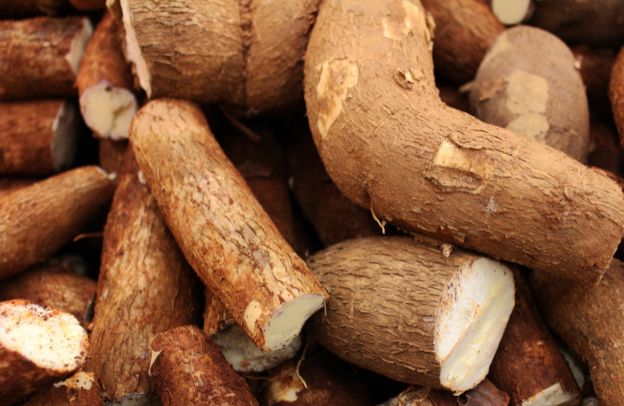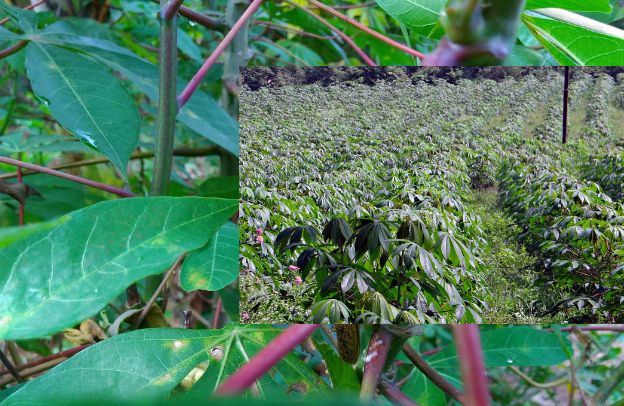Cassava as A Hidden Gem in the Nigerian and African Biofuel Industry

What if a humble root crop, widely consumed in developing countries, held the key to unlocking a sustainable, carbon-neutral future for our planet? Cassava, a root crop predominantly cultivated in tropical regions, has long been a dietary staple in many developing countries. Beyond its role in food security, cassava holds significant promise as a sustainable biofuel source, particularly in the form of ethanol.
Learn How to Leverage Your Story through our Story To Asset Transformation (S.A.T) Framework.
According to a publication by the FAO titled “Sustainability of Biogas and Cassava-Based Ethanol Value Chains in Vietnam,” the cassava-based ethanol value chain is composed of five key phases:
- Cassava farming,
- Cassava chip processing,
- Ethanol production,
- Ethanol distribution and Blending
- And ethanol utilization.
The study, which explored the implementation of the GBEP Sustainability Indicators for Bioenergy in Vietnam, highlighted several critical variables that could transform biofuel production through cassava.
This potential arises from cassava’s high starch content, its ability to thrive in various climates, and the possibility of using both its main produce and agricultural residues for energy generation.
Cassava’s Advantages as a Biofuel Source
One of the primary benefits of cassava in biofuel production is its high starch yield, which can be efficiently converted into fermentable sugars for ethanol production. Cassava can produce up to 40-50 tons per hectare, making it a highly productive crop.
Think about this. Nigeria, already the world’s leading producer of cassava and home to a large employable population in its agribusiness sector, is uniquely positioned to capitalize on this immense opportunity.
It’s important also to note that cassava’s resilience enables it to thrive in marginal soils with minimal agricultural inputs, making it an ideal energy crop for regions where other biofuel feedstocks may face challenges. Other advantages of cassava as a biofuel source include:
Low Production Costs
Cassava is a low-cost crop to produce, making it an attractive option for biofuel production. The cost of producing cassava is significantly lower compared to other biofuel feedstocks, such as corn or sugarcane. This is due to the fact that cassava is a hardy crop that requires minimal agricultural inputs, such as fertilizers and pesticides.
See also: Maximizing Cassava Yield: Fertilizer Application Strategies for Small-Scale Farmers in Nigeria
High Energy Yield
Cassava has a high energy yield, making it a viable option for biofuel production. The energy yield of cassava is comparable to that of other biofuel feedstocks, such as corn and sugarcane. However, cassava has the added advantage of being a more sustainable crop, requiring less water and land to produce.
Carbon Sequestration
Cassava is a carbon-neutral crop, meaning that it absorbs as much carbon dioxide as it produces during its growth cycle. This makes cassava an attractive option for biofuel production, as it can help reduce greenhouse gas emissions and mitigate climate change.
Global Initiatives and Research
Several countries have recognized cassava’s biofuel potential and are investing in research and infrastructure to harness it. For example:
- China: China has identified cassava as a promising feedstock for ethanol production due to its high starch content and adaptability. Research efforts are focused on improving cassava varieties and optimizing processing technologies to enhance biofuel yields. China is also investing in large-scale cassava plantations and biofuel production facilities.
- Brazil: Brazil is also investing in cassava research, focusing on the development of new cassava varieties with improved starch content and disease resistance. Brazil is a leading producer of ethanol from sugarcane, and researchers are exploring the potential of cassava as a complementary feedstock.
- Nigeria: Nigeria is exploring the potential of cassava as a biofuel source, with a focus on small-scale, community-based biofuel production. Nigeria is a major producer of cassava, and researchers are working with local farmers to develop sustainable cassava production systems and biofuel production technologies.
See also Maximizing Cassava Yield: Fertilizer Application Strategies for Small-Scale Farmers in Nigeria
Other countries that are investing in cassava biofuel research and development include:
- Thailand: Thailand is a major producer of cassava, and researchers are exploring the potential of cassava as a biofuel feedstock.
- Indonesia: Indonesia is also investing in cassava biofuel research, focusing on the development of new cassava varieties and biofuel production technologies.
- Ghana: Ghana is exploring the potential of cassava as a biofuel source, with a focus on small-scale, community-based biofuel production.
Cassava is a versatile and sustainable crop that holds great promise as a biofuel source. Its high starch yield, low production costs, and carbon-neutral properties make it an attractive option for biofuel production.
Global initiatives and research are underway to harness cassava’s biofuel potential, and several countries are investing in large-scale cassava plantations and biofuel production facilities. As the world continues to search for sustainable energy solutions, cassava is an important crop to watch.
Challenges and Considerations
While cassava presents numerous advantages, its use as a biofuel feedstock is not without challenges. Some of the key challenges and considerations include:
- Food vs. fuel debate: The use of cassava for biofuel production raises concerns about the potential impact on food security, particularly in regions where cassava is a staple crop.
- Land use changes: Large-scale cultivation of cassava for biofuel production may lead to land use changes, potentially resulting in deforestation and habitat loss.
- Water usage: Cassava requires significant amounts of water for cultivation, which may strain local water resources.
- Genetic modification: The development of genetically modified cassava varieties raises concerns about the potential impact on biodiversity and ecosystem health.
See also: Cassava Starch: A Golden Opportunity for African Entrepreneurs in the Global Agribusiness Landscape
Addressing the Challenges
To address the challenges associated with cassava biofuel production, it is essential to adopt sustainable practices and policies. Some strategies for addressing the challenges include:
- Sustainable agriculture practices: Implementing sustainable agriculture practices, such as crop rotation and organic farming, can help reduce the environmental impact of cassava cultivation.
- Certification schemes: Establishing certification schemes, such as the Roundtable on Sustainable Biofuels (RSB), can help ensure that cassava biofuel production meets rigorous sustainability standards.
- Policy support: Governments can provide policy support for sustainable cassava biofuel production, such as tax incentives and subsidies for sustainable agriculture practices.
Economic Benefits
Cassava biofuel production can also provide significant economic benefits, including:
- Job creation: Cassava biofuel production can create jobs in rural areas, both in cultivation and processing.
- Income generation: Cassava biofuel production can provide a new source of income for farmers and rural communities.
- Economic growth: Cassava biofuel production can contribute to economic growth, both locally and nationally.
Social Benefits
Cassava biofuel production can also provide significant social benefits, including:
- Food security: Cassava biofuel production can help improve food security, particularly in regions where cassava is a staple crop.
- Rural development: Cassava biofuel production can contribute to rural development, providing new economic opportunities and improving living standards.
- Community engagement: Cassava biofuel production can promote community engagement and participation, particularly in small-scale, community-based production.
Environmental Benefits
Cassava biofuel production can also provide significant environmental benefits, including:
- Carbon sequestration: Cassava is a carbon-neutral crop, meaning that it absorbs as much carbon dioxide as it produces during its growth cycle.
- Soil conservation: Cassava cultivation can help improve soil health and reduce erosion.
- Biodiversity conservation: Cassava cultivation can help promote biodiversity conservation, particularly in regions where cassava is a staple crop.
See also: Cassava and Sustainable Agriculture Practices In Nigeria
Conclusion
In conclusion, cassava is a versatile and sustainable crop that holds great promise as a biofuel source. With its high starch content, adaptability to diverse climates, and potential for small-scale, community-based production, cassava can play a significant role in the global biofuel landscape.
Moving forward in the quest for sustainable energy solutions, overlooking the potential of cassava as a biofuel source. We urge policymakers, investors, and industry stakeholders.
Learn How to Leverage Your Story through our Story To Asset Transformation (S.A.T) Framework.





